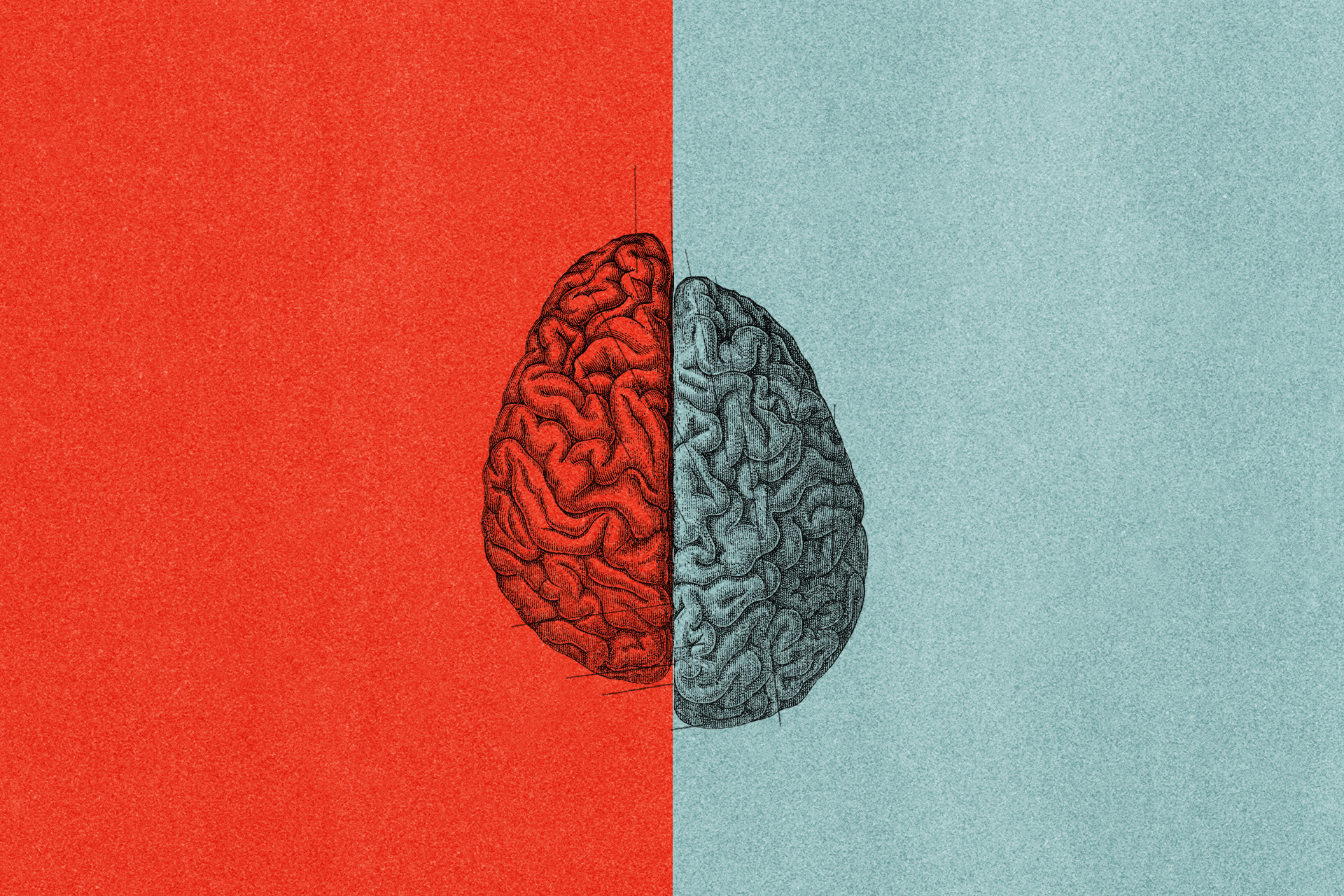And this is your brain on technology…any questions?
“The Web Shatters Focus and Rewires Brain”? That sounds like the subtitle to a Lloyd Kaufman film, not the header of an article published in a major, non-saterical magazine. But, alas, these are strange days and here we are, living lives that are not quite Jetson-esque but certainly are more laced with (and in some cases dependent upon) technology than even Mr. Kaufman could have even dreamt up when his film career began.
Though I would prefer to live a more “offline” existence, my career path has dictated I get up close and personal with technology in all its forms and live it, know it, love it. Over the last few years, however, I’ve started to have moments where I question my information retention levels. I’ve always chalked this up to the fact that I consume lots of data in a day – both on and offline – and that maybe I’m just on information overload. I thought it was just me, then Eric started sending me articles like this NPR article over the past few weeks (full Atlantic Monthly article here). The main take away being that, “While much of the (Internet) revolution is positive…we should be aware that there might be some casualties, including prolonged reading and time for contemplation.”
My short term relief (so I don’t have a memory loss disorder!) was short-lived. Could this be true? Could our daily Internet use be rewiring the way we think, learn, and digest information? As suggested by Nicholas Carr in Wired Magazine, June 2010 (in an article sharing the title of my opening quotation) even as little as 1 hour a day x 6 days can lead to a significant rewiring of the way one processes + absorbs information.
When we say “rewiring of the brain,” what exactly does this mean?
- What we do with content online is more skim, rather than read.
- Comprehension of what is “skimmed” is superficial at best. This is contributed in large part to many intermediate-to-advanced Internet users’ cognitive overload as a result of being exposed to large amounts of data (not just the text but also hyperlinks, dynamic imagery/content, etc.). Studies suggest that even juggling 2 tasks – let’s say reading an article and debating, even subconsciously, whether or not to click the hyperlinks in that article or answer a direct message on Twitter concurrently – can contribute immensely to cognitive overload and drastically reduce comprehension.
- Information is stored in the working memory and has less of a chance of being cataloged to the long-term memory for later retrieval or use.
- A redefinition of what it means to be “out of touch” – i.e. “If I don’t immediately tweet a response to what my friend just said I’m going to be excluded from the ongoing digital conversation.”
There has been a lot of talk on this topic recently (see this recent New York Times article as one example) but I think Carr’s point in a separate article for Atlantic Monthly – that this is the way of technology, not just the Internet – is an important one. He spends some time talking about the way mechanical clocks changed the way humans not only perceived time but altered our motivation for performing certain actions. No longer was modern man counting on his/her biology – hunger pangs, stomach growling – to alert them to their own hunger. It’s was noon. Lunchtime. So they must be hungry. And the perception of time, how long different acts should take or that space between acts, that internal sensing became more abstract the more interaction humans had with their new time telling crutch.
Carr goes on to say that the Internet alone is not responsible for the “rewiring” – now traditional media is getting in on the game. You’ve seen it – over the last few years, TV has started to employ an in-show display advertising approach (TNT + AMC being key culprits). I find it horribly annoying and do agree that it is distracting and takes away from the experience of watching whatever it is I happen to be watching (admittedly, I don’t watch that much TV and when I do I like not to be distracted from the content at hand). Furthermore, in a somewhat Huxley-esque way, he asserts that the standardization of factory practices (such as those experiments that were documented by Fredrick Winslow Taylor in his 1911 publication The Principles of Scientific Management), of the workman’s behavior are akin to the way that Google is streamlining the process of deductive thought + problem solving. Much of the hard work, creative thought, and active search is eliminated from the process in the name of efficiency and simplicity. I also agree with Carr when he says (in response to Google’s POV on artificial, computerized intelligence): “[Google’s] easy assumption that we’d all ‘be better off’ if our brains were supplemented, or even replaced, by an artificial intelligence is unsettling. It suggests a belief that intelligence is the output of a mechanical process, a series of discrete steps that can be isolated, measured, and optimized. In Google’s world, the world we enter when we go online, there’s little place for the fuzziness of contemplation. Ambiguity is not an opening for insight but a bug to be fixed. The human brain is just an outdated computer that needs a faster processor and a bigger hard drive.”
Scary stuff indeed.
What does all of this mean? For starters, we have 2 issues: the rewiring debate (i.e. is it or is it not happening) coupled with feelings about what makes for good intelligence and, equally important, progress. You either buy it or you don’t – and I do. After realizing my brain was not functioning the way it used to I made the conscious choice last month to change the way I READ Internet text. I read entire articles, then I go back and click through links/video content/etc. I’m no scientist, but I feel it is making a huge difference. I’ve also upped the amount of offline reading I do. Especially while at home, I prefer reading while holding something tangible, tactile. Eric + I still receive several traditional magazines/newspapers and have no intention of switching over to digital publications across the board.
And, as much as I respect the Google gents, there is no substitute for the human brain. There is no left and there is no right (according to neuroscientist Dr. Danielle Stolzenberg) – instead, it is a system of interconnected branches – technical patterns and improvised brushstrokes intertwined. I like the randomness – the creativity that comes from stream of consciousness thinking. The inside jokes. The art. The human nature of it all.
One last note on the ideological debate in place: I have seen many articles that pit Nicholas Carr and Clay Shirky (who I also greatly respect) on opposite sides of the cognitive overload debate. From what I’ve seen, however, it seems that they are saying two very different things. Shirky has commented on the fact that every new medium that has ever been created produces more trivial and in some cases trash material before masterpieces in that medium are released. His position, however, seems to be that because of the surplus of information available to all of us, it is possible to aggregate that information and harness it to provide more comprehensive answers/solutions on the web (examples included in his TED talk). I agree – but Carr is not arguing about the quality of the vast amount of information available nor is he denying the benefits of aggregated content. He is instead concerned with the duality of the reader’s experience online (making one’s way through text AND having to decide whether or not to perform other actions on a page). More than that, he is commenting on our collective ability to absorb, comprehend, and mentally access that information in both the short and long term.
Now, for myself + my marketing comrades: what do we do with this unique predicament? We want to communicate effectively, be memorable, but then there’s SEO and relevancy and best practices in the digital world that go against much of what these thoughts on comprehension are suggesting. While I have little intention of changing the way I write/organize my posts on this blog, I believe we have a lot to think about when it comes to the way that we present ideas online. Does it mean less text, more dynamic experiences (i.e. full page, truly interactive sites? More online video content)? Perhaps – and I wouldn’t rule it out. Regardless, I think we’ll have some fun experimenting on our way to defining best digital practices that increase both comprehension + likelihood of positive metrics in the year to come.










